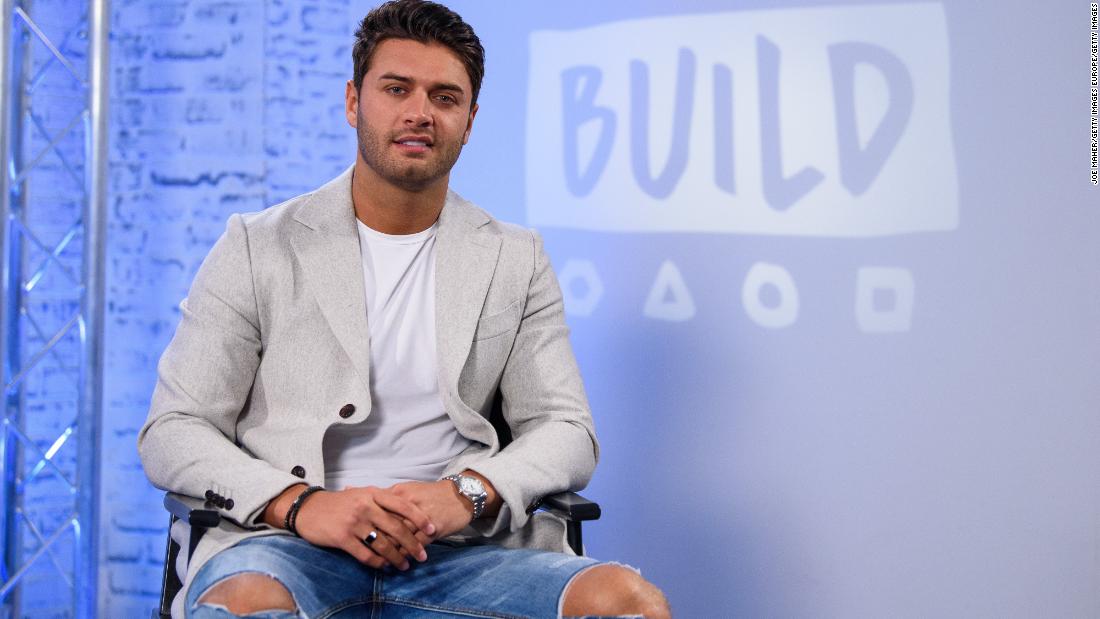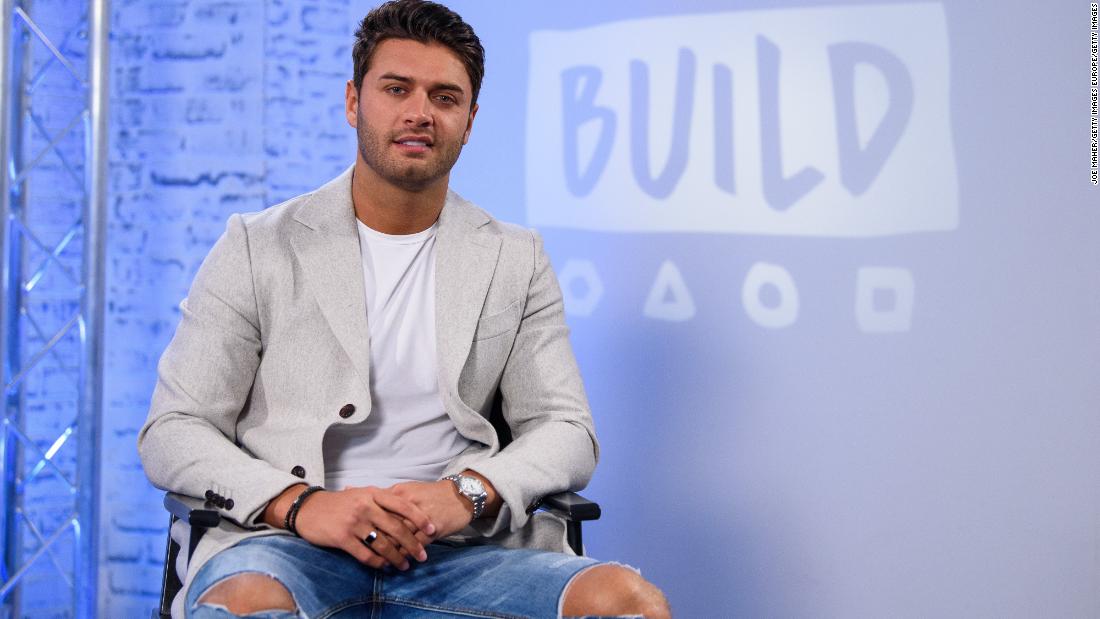
We’re not equipping reality stars for internet fame. That must change
April 4, 2019
(CNN)Stars of reality dating shows become our constant companions during the weeks and months they grace our screens.
The suicide deaths of two former “Love Island” contestants, Mike Thalassitis and Sophie Gradon, in the past year have prompted fellow contestants to speak out about the show’s toll on their mental health. Their experiences point to an alarming gap in the care received by reality television stars once they exit the show.
The genre of reality television has evolved since it came to mainstream prominence in the early 2000s — and so too has the nature of fame. Fame and the internet are now closely intertwined. Follower counts are not only one of the primary metrics for gauging a level of fame — but one wrong move online can cancel a career overnight. Irrespective of one’s fame (or lack thereof), social media and mental health are also now inextricably tethered — and not for the better.
What we’re currently not doing is equipping reality stars for fame in an internet era. Jonny Mitchell — who appeared on “Love Island” alongside Thalassitis — created a Change.org petition that called on ITV to provide after-show support to all its contestants. In the petition, which has since received more than 83,000 signatures, Mitchell reveals he was “trolled more than most” after “Love Island.” And though he says it didn’t affect him, he says he was never contacted by the show to see if he was in need of support.
“For younger people going into that environment, being shot to fame literally overnight, and then being cut loose to try and handle what’s waiting for them all alone is just wrong, and it’s something that these reality shows need to take into account,” Mitchell adds.
He raises an important point. What’s waiting for these overnight reality stars is something that’s beyond most of our wildest nightmares. Unrelenting trolling and online abuse are now standard fare. 2018 “Love Island” star, Megan Barton-Hanson, has spoken out about how she found it hard to cope after she was “cast as a pantomime villain” after her relationship with Wes Nelson.
Alex Miller — who also appeared on last year’s show — has talked about experiencing suicidal thoughts after appearing on the show.
Mental health stigma
In the days following Thalassitis’ death, ITV issued a statement vowing to make changes to its aftercare protocols and stating its intention to roll out social media training to all future contestants (AKA “Islanders”).
“This review has led us to extend our support processes to offer therapy to all Islanders and not only those that reach out to us,” reads ITV’s statement. “The key focus will be for us to no longer be reliant on the islanders asking us for support but for us to proactively check in with them on a regular basis.”
Previously, ITV’s protocol entailed monitoring participants during filming and providing them with access to “psychological support before, during, and after appearing on the show.” Contestants are also screened for mental and physical health issues before entering the villa.
These aforementioned proactive check-ins are crucial. Mental health stigma can make it extremely difficult for anyone living with mental illness to ask for help. Relying on contestants to put their hands up when they’re in need of support is no longer an option for ITV — nor should it be for any production company in the business of reality television.
It’s not quite clear what this social media training will involve. But, in my mind, it’s imperative that it offers a comprehensive look at how the internet responds to famous figures in this constantly evolving era. Reality stars need to be prepared for trolling and online harassment, but they also need to be aware of cancel culture, milkshake ducking, doxxing. And ideally, these conversations about what exactly it means to be internet-famous need to happen long before they set foot inside a filming location.
Love Islanders exit the show with Instagram and Twitter followings to rival that of any celebrity. The difference is, not all of them necessarily have the support staff to aid them in moments of extreme need. Moments that extend beyond online abuse can go into disturbing areas.
During the 2018 season of “Love Island,” intimate images of three female contestants — Zara McDermott, Megan Barton-Hanson, and Laura Anderson — were published without their consent. In the event of revenge porn and deepfakes, counselling services and legal teams need to be made available to any contestant who becomes a victim of non-consensual pornography.
The internet gives an afterlife to moments of joy and pain: they become memes, they’re used as reaction GIFs, and they exist forever on YouTube. Forewarning reality stars of the indelible internet legacy of their reality TV stints and the myriad ways their digital identities might be used for web humor is vital.
These televised moments of distress have come under the scrutiny of concerned viewers. Last year, Ofcom received 2,525 complaints from viewers after contestant Dani Dyer was shown a misleading video of her boyfriend Jack Fincham reacting in shock to his ex-girlfriend’s arrival at the villa, which prompted her to burst into tears. A subsequent investigation by Ofcom ruled that ITV hadn’t breached any broadcasting rules by airing Dyer’s visible distress. That said, speaking as an avid “Love Island” viewer, I had to switch off that episode because it was too upsetting to watch.
Entertainment over ethics?
“Love Island” isn’t the only program to put its contestants through ordeals that viewers deem needlessly distressing. Season 22 of US reality dating show “The Bachelor” ended in a way that was so upsetting to watch, my friends and I hit pause on the episode and never resumed it.
What was particularly egregious about this episode was that it not only filmed and broadcast bachelor Arie Luyendyk Jr.’s breakup with fiancée Becca Kufrin, this breakup was shown in an almost entirely unedited state. As if that wasn’t enough, “Bachelor” host Chris Harrison invited Kufrin to watch the footage back during a live episode aired on national television before asking her how it felt to relive that moment.
The finale provoked the ire of viewers, who were rightly appalled at Kufrin’s treatment. A question that producers might ask themselves is this: are we prioritizing entertainment over ethics? Ultimately, ratings shouldn’t be put before the contestants’ wellbeing.
If we are to glean anything from the suicides of two Love Island contestants, it’s that an industry-wide overhaul is needed. ITV has responded with positive steps. But it’s time for other studios — and not just those located in the UK — to follow suit.
As a public, we become deeply invested in these reality stars. We develop soft spots, crushes, and firm fan favorites as we watch the dramatic goings-on night after night. Our offices, dinner parties, and social media are replete with conversations about which contestant we love most and who’s won a special spot in our hearts. But once our stars are no longer serving up plates of entertainment, do we then cease to care about their wellbeing? The reality fame machine chews up these once unknown humans and spits them out into a changed world.
The question here is a moral one: do we treat our reality stars as human beings or simply as sources of entertainment? For television studios and the internet at large, the answer should be clear. It’s our responsibility to ensure they’re treated as humans.
Read more: http://edition.cnn.com/



